Computational theories of the mind seem to be ideally suited to explain rationality. But how can computations be subverted by meaning, emotion and love?
Joscha.
Computational theories of the mind seem to be ideally suited to explain rationality. But how can computations be subverted by meaning, emotion and love?
Joscha.

Researchers from North Carolina State University used computational analysis to predict how optical properties of semiconductor material zinc selenide (ZnSe) change when doped with halogen elements, and found the predictions were confirmed by experimental results. Their method could speed the process of identifying and creating materials useful in quantum applications.
Creating semiconductors with desirable properties means taking advantage of point defects—sites within a material where an atom may be missing, or where there are impurities. By manipulating these sites in the material, often by adding different elements (a process referred to as “doping”), designers can elicit different properties.
“Defects are unavoidable, even in ‘pure’ materials,” says Doug Irving, University Faculty Scholar and professor of materials science and engineering at NC State. “We want to interface with those spaces via doping to change certain properties of a material. But figuring out which elements to use in doping is time and labor intensive. If we could use a computer model to predict these outcomes it would allow material engineers to focus on elements with the best potential.”
The aircraft is one of Northrop Grumman’s best models.
The Northrop Grumman E-2 Hawkeye is an American all-weather, carrier-capable tactical airborne early warning aircraft. Its latest and most advanced version is the E-2D Advanced Hawkeye.
which features the AN/APY-9 radar (capable of detecting fighter-sized stealth aircraft), radio suite, mission computer, integrated satellite communications, flight management system, improved T56-A-427A engines, a glass cockpit and aerial refueling.
The E-2D Advanced Hawkeye provides warfighters with the necessary situational awareness to compress the time between initial awareness and active engagement.

To smash atoms with unimaginable power.
Cern’s Large Hadron Collider (LHC) is back online after a three-year technical shutdown period. The expert scientists at the famous research facility ran the powerful accelerator at the end of April, and Run 3 physics started in early July. The entire process ran at the highest energy level ever achieved in an accelerator.
The LHC experiments are expected to collect so much data on nature at its smallest levels that it is measured in petabytes.
(LHC) is the world’s largest and most powerful particle accelerator. It consists of a 27-kilometre ring of superconducting magnets with a number of accelerating structures to boost the energy of the particles along the way.
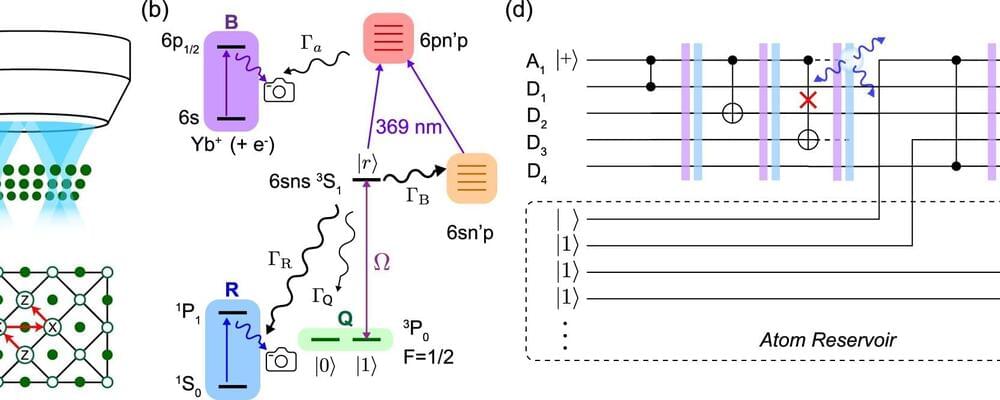
Researchers have discovered a new method for correcting errors in the calculations of quantum computers, potentially clearing a major obstacle to a powerful new realm of computing.
In conventional computers, fixing errors is a well-developed field. Every cellphone requires checks and fixes to send and receive data over messy airwaves. Quantum computers offer enormous potential to solve certain complex problems that are impossible for conventional computers, but this power depends on harnessing extremely fleeting behaviors of subatomic particles. These computing behaviors are so ephemeral that even looking in on them to check for errors can cause the whole system to collapse.
In a paper outlining a new theory for error correction, published Aug. 9 in Nature Communications, an interdisciplinary team led by Jeff Thompson, an associate professor of electrical and computer engineering at Princeton, and collaborators Yue Wu and Shruti Puri at Yale University and Shimon Kolkowitz at the University of Wisconsin-Madison, showed that they could dramatically improve a quantum computer’s tolerance for faults, and reduce the amount of redundant information needed to isolate and fix errors. The new technique increases the acceptable error rate four-fold, from 1% to 4%, which is practical for quantum computers currently in development.
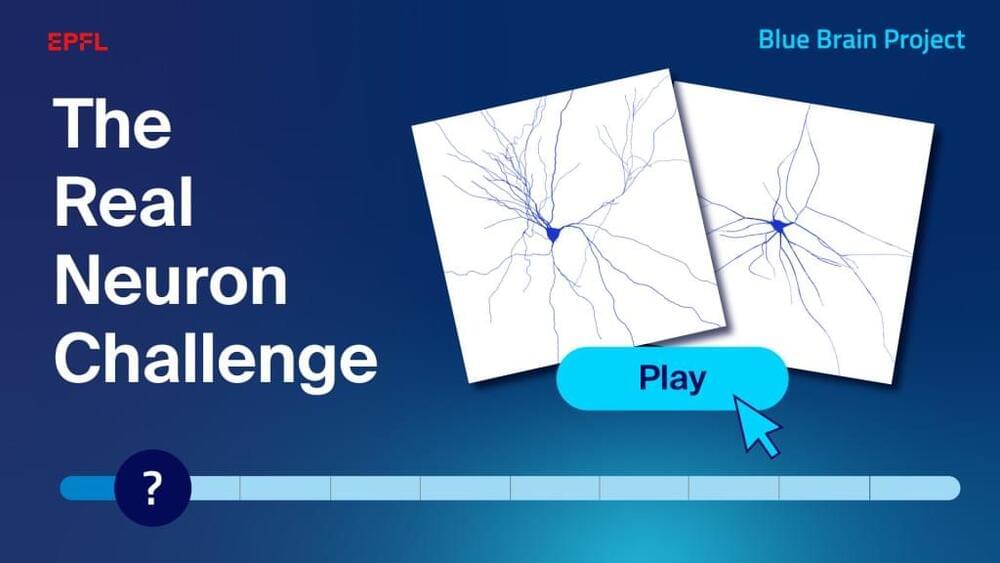
In a study published in Cell Reports, we present a novel algorithm for the digital generation of neuronal morphologies, based on the topology of their branching structure. This algorithm generates neurons that are statistically similar to the biological neurons, in terms of morphological properties, electrical responses and the connectivity of the networks they form.
This study represents a major milestone for the Blue Brain Project and for the future of computational neuroscience. The topological neuron synthesis enables the generation of millions of unique neuronal shapes from different cell types. This process will allow us to reconstruct brain regions with detailed and unique neuronal morphologies at each cell position.
The topological representation of neurons facilitates the generation of neurons that approximate morphologies that are structurally altered compared to healthy neuronal morphologies. These structural alterations of neurons are disrupting the brain systems and are contributing factors to brain diseases. The topological synthesis can be used to study the differences between healthy and diseased states of different brain regions and specifically, what structural alterations of neurons are causing important problems to the networks they form.
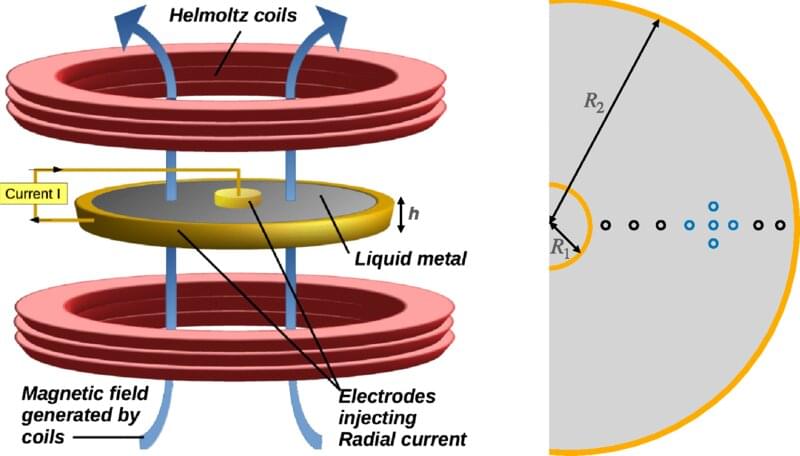
A team of researchers at the Sorbonne University of Paris reports a new way to emulate black hole and stellar accretion disks. In their paper published in the journal Physical Review Letters, the group describes using magnetic and electric fields to create a rotating disk made of liquid metal to emulate the behavior of material surrounding black holes and stars, which leads to the development of accretion disks.
Prior research has shown that massive objects have a gravitational reach that pulls in gas, dust and other material. And since such massive objects tend to spin, the material they pull in tends to swirl around the object as it moves closer. When that happens, gravity exerted by materials in the swirling mass tends to coalesce, resulting in an accretion disk. Astrophysicists have been studying the dynamics of accretion disks for many years but have not been able to figure out how angular momentum is transferred from the inner parts of a given accretion disk to its outer parts as material in the disk moves ever closer to the central object.
Methods used to study accretion disks have involved the development of math formulas, computer simulations and real-world models using liquids that swirl like eddies. None of the approaches has proven suitable, however, which has led researchers to look for new models. In this new effort, the researchers developed a method to generate an accretion disk made of liquid metal bits spinning in the air.
For all the talk about embedding computers in clothing, here’s an interesting option. Make the clothing the computer, and do it without electricity.
Mechanical engineers at Rice University’s George R. Brown School of Engineering are trying the concept on for size with a set of textile-based pneumatic computers capable of digital logic, onboard memory and user interaction.
The lab’s “fluidic digital logic” takes advantage of how air flows through a series of “kinked” channels to form bits, the 1s and 0s in computer memories.
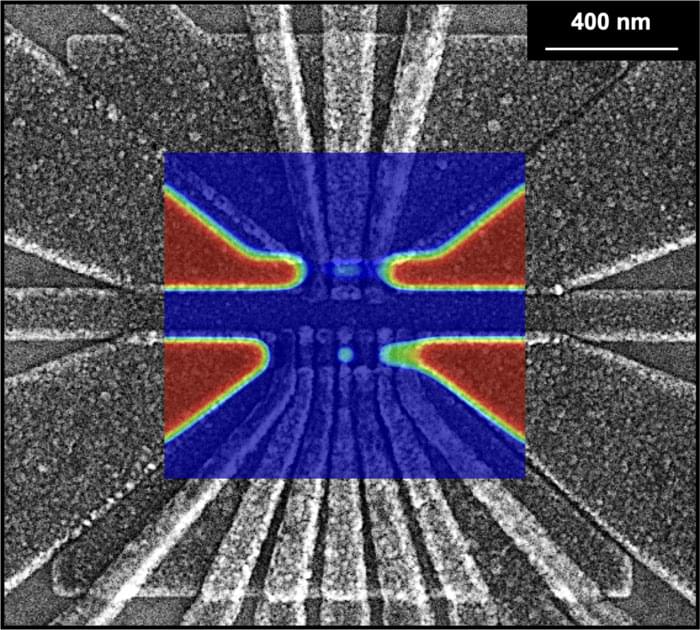
Qubits are the building blocks of quantum computers, which have the potential to revolutionize many fields of research by solving problems that classical computers can’t.
But creating qubits that have the perfect quality necessary for quantum computing can be challenging.
Researchers at the University of Wisconsin–Madison, HRL Laboratories LLC, and University of New South Wales (UNSW) collaborated on a project to better control silicon quantum dot qubits, allowing for higher-quality fabrication and use in wider applications. All three institutions are affiliated with the Chicago Quantum Exchange.
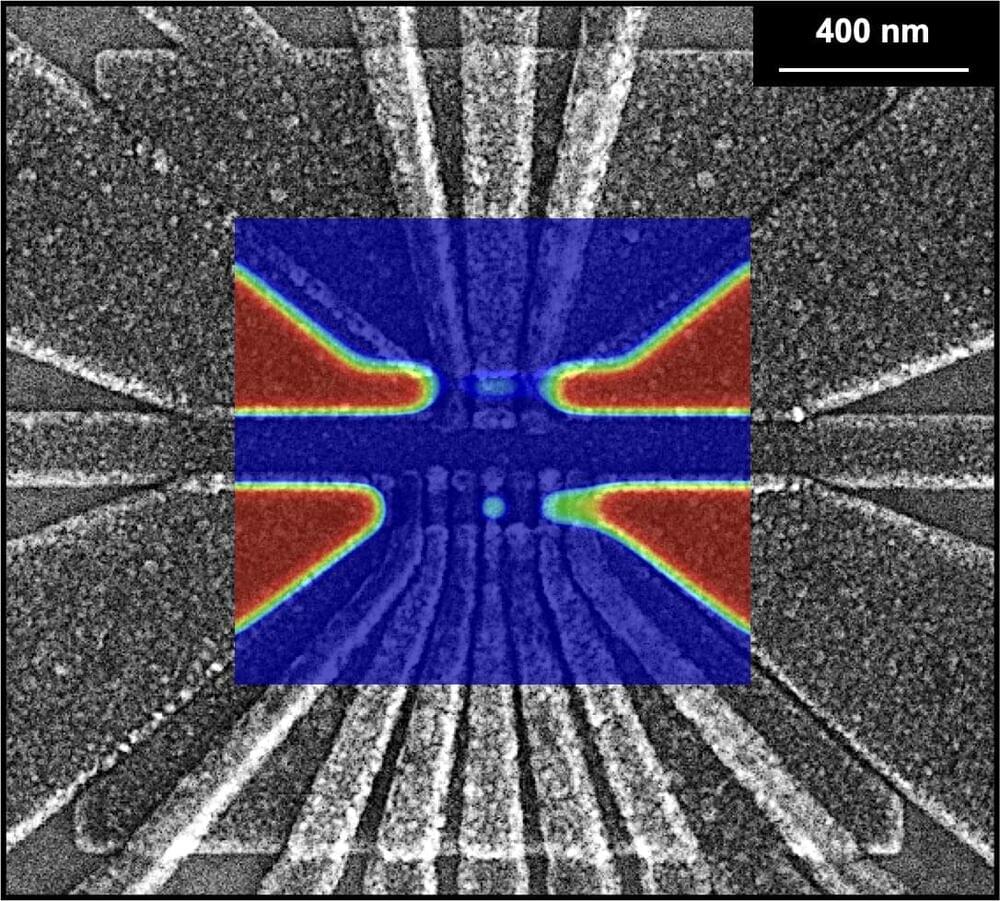
Qubits are the building blocks of quantum computers, which have the potential to revolutionize many fields of research by solving problems that classical computers can’t.
But creating qubits that have the perfect quality necessary for quantum computing can be challenging.
Researchers at the University of Wisconsin–Madison, HRL Laboratories LLC, and University of New South Wales (UNSW) collaborated on a project to better control silicon quantum dot qubits, allowing for higher-quality fabrication and use in wider applications. All three institutions are affiliated with the Chicago Quantum Exchange. The work was published in Physical Review Letters, and the lead author, J. P. Dodson, has recently transitioned from UW–Madison to HRL.